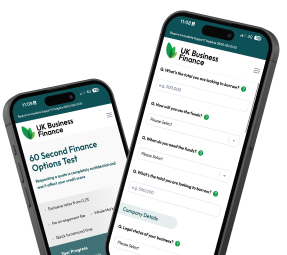
What are your options when your company is refused finance?

Being refused finance or having a loan called in by your bank is not unusual these days. Traditional lending institutions have become extremely risk-averse since the 2007 economic downturn, and seeking finance remains a challenging process for many company directors.
One of the main problems is that banks seldom investigate the trading history of a company – they simply use an automated approach to lending, based on your company’s credit score.
This can be somewhat frustrating for directors who could provide indisputable proof of good business performance, but their hands are tied by the banks’ systems and processes.
One alternative course of action is to hire a professional broker who could potentially bring awareness to a range of hitherto unconsidered options for borrowing, opening up the whole of the market, rather than focusing narrowly on one or two favoured institutions.
BTG Begbies Traynor can advise on the best alternative finance options for your company. We are corporate and commercial finance specialists.
Crowdfunding
Not normally associated with larger established businesses, your company could benefit in several ways from crowdfunding in addition to gaining access to finance.
Companies testing the market with a new product would be able to gauge consumer interest, as well as keeping in regular contact with interested parties to increase their brand exposure.
Asset-based lending
This involves using the inherent value of a business asset to secure finance. The asset is offered as security, and would be sold to pay off the debt should your company become delinquent on payments. Asset-based lending typically involves a fixed charge over a specific asset or asset class.
The asset in question might be a piece of machinery, a vehicle, or even the debts contained in your sales ledger. This particular type of asset-based lending involves selling your sales ledger to a factoring company that controls the collection of payments and general administration of these debts.
Your company would be offered a percentage of the debts owed – generally around 85%, which translates to a large injection of cash on a monthly basis. If sales go up, so does the amount of cash from the factoring company.
Solutions Based Funding Options
- UK's Leading Business Funders
- Free Brokerage Service
- Full Market Access
Equity release
Just as homeowners release equity in their property, if the company owns its premises and there is equity in the property, you too could release some much-needed cash – generally between 50% and 70% depending on the lender and your company’s circumstances.
This method of financing releases a tax-free lump sum which could be used to restructure and regain a firm footing in your market.
Using a director’s personal pension to access funding
This may be an option if you, as a director, have a personal pension with a minimum value of £50,000. Intellectual property owned by the company, such as trademarks or copyrights can be used to gain access to a ‘loan’ from the pension.
Alternatively, a commercial loan may be available which is repaid to the pension with interest. Having confidence in business performance and potential growth is important when considering this option, however, as the exposure to risk is considerable.
Invoice discounting
Invoice discounting is a form of invoice financing, similar to invoice factoring. Your sales ledger is used as the basis for lending. The total of unpaid invoices dictates how much you can borrow, with a fixed percentage generally being offered by the finance company.
With invoice discounting, your company remains in control of the sales ledger and maintains contact with customers as normal during the collection process.
BTG Begbies Traynor can offer professional advice on the best options for your company. We offer an initial consultation free of charge, and operate from an extensive UK office network.
More BTG Begbies Traynor Articles
Contact the team
Key Contact

You're in Safe Hands
- 35+ Years Experience
- 100+ UK Offices
- Confidential director support
- Insolvency market leader
Article Archive
Article Categories



